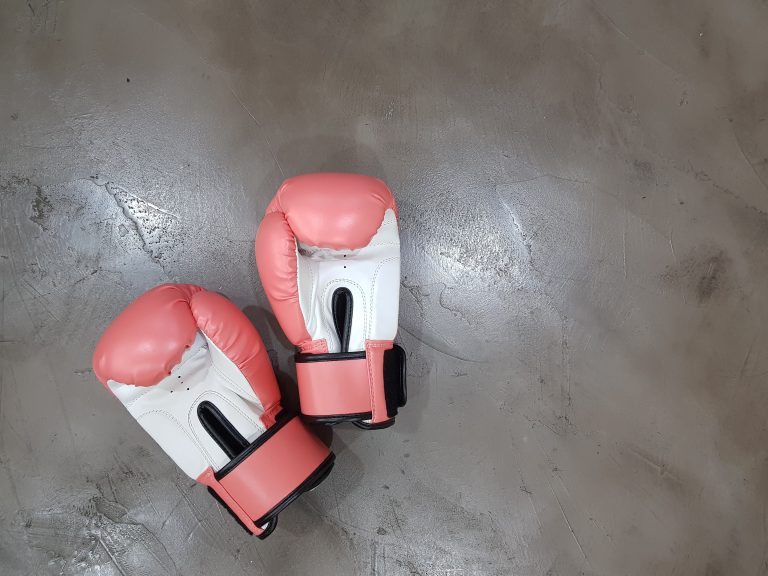Can Karate Help Treat Stress?
Stress is a common issue that most of us face nowadays. It can be caused by a variety of factors such as work pressure, anxiety, relationship issues, financial problems, and health concerns. While there are many ways to manage stress, one effective method that is gaining popularity is practicing martial arts, particularly karate.
Karate is a Japanese martial art that involves the use of punches, kicks, knee strikes, and open-hand techniques, among others. It is known for its emphasis on speed, strength, and precision, as well as its mental and spiritual aspects. Many practitioners of karate have found that it not only improves their physical health but also their mental and emotional well-being.
Below are some ways that karate can help treat stress:
Physical Exercise
One of the most effective ways to reduce stress is through physical exercise. Karate involves various forms of rigorous physical activity, such as sparring, Kata, and strength and endurance training that help increase the production of endorphins or ‘feel-good hormones’. These hormones act as natural painkillers and mood stabilizers that help reduce stress, anxiety, and depression.
Mind-Body Connection
Karate, like most martial arts, emphasizes the importance of the mind-body connection. Practitioners are taught to be mindful of their breathing, movements, and posture, which creates greater self-awareness, concentration, and discipline. This mind-body connection helps individuals to stay calm, centered, and focused, even in stressful situations.
Self-Defense
Karate also helps individuals to develop self-defense skills, which can reduce stress and the fear of being attacked or harmed. The knowledge and skills developed during karate practice provide individuals with the confidence and ability to protect themselves and others, creating a sense of empowerment and safety.
Community Support
Lastly, karate provides individuals with a supportive community of practitioners who share similar goals and values. This sense of community helps individuals to feel connected, supported, and understood. The encouragement and motivation provided by peers can help reduce the feelings of isolation and helplessness that are often associated with stress.
In conclusion, karate is an effective and holistic way to manage stress. Its combination of physical exercise, mind-body connection, self-defense, and community support offers many benefits for those who practice it regularly. If you are looking for a fun and engaging way to reduce stress and improve your overall well-being, then karate may be a perfect choice for you!
Can Karate Help Treat Stress? A Comprehensive Guide to Understanding the Benefits of Karate on Stress Management
Stress is a common problem that affects an increasing number of people worldwide. In our modern, fast-paced society, work, family, and social pressures can lead to stress overload, resulting in physical and mental health problems. While there are different stress management techniques available, some people turn to martial arts like karate to manage and alleviate their stress.
Karate is a traditional Japanese martial art that promotes physical fitness, self-defense, and inner peace. Karate involves various movements, including kicks, punches, and strikes, that require mental focus, discipline, and coordination. In this article, we will explore the most frequently asked questions about the topic; Can Karate help treat stress?
The Science of Stress
Before delving into the topic, it’s important to understand what stress is and how it affects the body. Stress is a physiological response to external or internal stimuli that disturb our mental or physical equilibrium. The body releases stress hormones, such as cortisol, adrenaline, and norepinephrine, to help us cope with the situation. These hormones cause physical changes like increased heart rate, blood pressure, and breathing rate, which prepare us for the fight or flight response.
While stress is a natural and necessary response, chronic stress can lead to negative health consequences like anxiety, depression, insomnia, and heart disease. Hence, managing stress is crucial for maintaining overall health and well-being.
How Can Karate Help Manage Stress?
Karate training involves various physical and mental aspects that can help manage stress. Here are some ways karate can help:
1. Physical Exercise
Karate involves a full-body workout that increases muscle strength, endurance, and flexibility. Engaging in regular physical exercise has been shown to reduce stress levels by increasing the production of endorphins, which reduce pain and induce feelings of pleasure and relaxation. Additionally, physical exercise also improves cardiovascular health, which reduces the risk of developing stress-related illnesses.
2. Mind-body Connection
Karate emphasizes the integration of physical movements with mental focus and breath control. Practitioners are taught to synchronize their movements with their breath to achieve optimal performance and focus. This meditative aspect of karate can help manage stress by promoting relaxation and mental clarity.
3. Controlled Breathing
In Karate, specific breathing patterns are used during training, which promote relaxation and reduce stress levels. Studies have shown that controlled breathing exercises, like those used in Karate, can help manage anxiety, depression, and PTSD symptoms.
4. Self-defense Techniques and Confidence
Karate training involves learning self-defense techniques and developing confidence in one’s abilities. This confidence can help reduce stress levels by reducing the feeling of vulnerability and increasing self-esteem.
Precautions to take while using Karate to manage stress
While Karate can be an effective stress management technique, it’s important to consider the following precautions:
1. Consult a healthcare professional
Before starting any new physical activity, consult a healthcare professional to ensure that it’s safe for you, especially if you have any pre-existing medical conditions.
2. Find a Qualified Instructor
To reap the benefits of Karate, ensure that you find a qualified instructor who will guide you safely through the training.
3. Start slow and Progress Gradually
Avoid pushing yourself too hard and progressing too fast, as it may lead to injury or burnout. Start slow and progress gradually to avoid imposing unnecessary stress on your body.
4. Listen to Your Body
If you experience pain, discomfort, or fatigue during training, listen to your body and rest as needed. Overtraining can lead to stress overload and increase the risk of injury.
Conclusion
In conclusion, Karate is a potentially effective technique for managing stress. Its combination of physical exercise, mental focus, breath control, and self-defense techniques promotes overall wellness, and its meditative aspect enhances relaxation and mental clarity. However, as with any physical activity, it’s essential to practice caution and take the necessary precautions to avoid injury and burnout. With a qualified instructor and a structured training program, anyone can benefit from the stress-relieving effects of Karate.
Inhaltsverzeichnis






